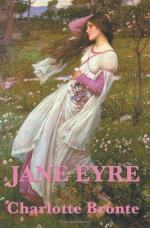|
This section contains 351 words (approx. 1 page at 400 words per page) |

|
1840s: Like other creative and intellectual pursuits, novel writing is considered a male preserve. Women such as the Brontë sisters, George Eliot (Mary Ann Evans), and in France, George Sand (Amandine-Aurore Lucille Dupin), write under male pseudonyms in order to have their work taken seriously.
Today: Many of the leading novelists in Britain are women, and they are regarded as the equals of their male counterparts. Major British women novelists include A. S. (Antonia) Byatt, P. D. (phyllis) James, Iris Murdoch, and Muriel Spark.
1840s: Many well-to-do families employed women as governesses to educate their children at home and to supervise children's activities. By 1851, some twenty-five thousand women worked as governesses in Britain. Although being a governess was regarded as respectable, opportunities for governesses to move into other positions were limited.
Today: Some young women take temporary jobs abroad as "au pairs...
|
This section contains 351 words (approx. 1 page at 400 words per page) |

|




